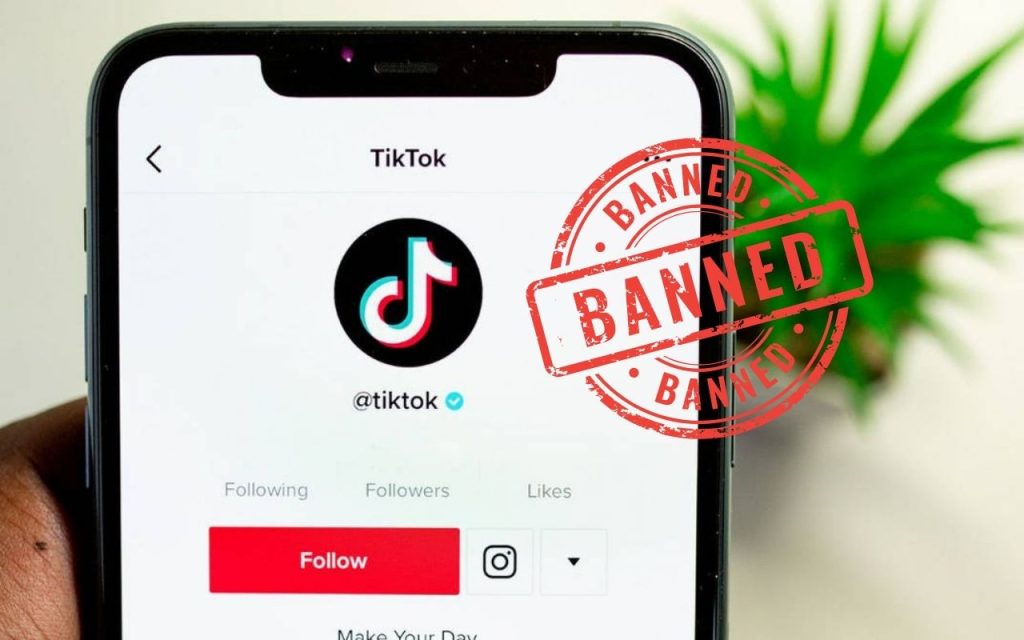TikTok Ban Update in USA – We all know it as the app that made 15-second videos an art form and birthed countless viral trends. However, it seems TikTok has danced its way into yet another round of controversy in the U.S. If you’ve been hearing whispers (or outright rants) about a TikTok ban recently, you’re not alone. It’s 2025, and the saga between TikTok and U.S. lawmakers is heating up yet again, leaving millions of users in limbo.
The question on everyone’s mind: Is TikTok getting banned in the USA for good this time? Let’s dig into the details, from government concerns and legal challenges to what this all means for creators, businesses, and users just trying to scroll in peace.
Why Is TikTok in Hot Water? A Quick Recap of the Saga
TikTok’s troubles in the United States aren’t exactly breaking news. Concerns about the app’s data collection policies and its ties to China (through its parent company, ByteDance) first made headlines way back in 2020. At that time, then-President Donald Trump threatened a ban on the platform, citing national security risks.
But it didn’t happen. Fast-forward to today, and the controversy still hasn’t been put to bed. The current administration and lawmakers are revisiting the issue with fresh energy. Why? Here’s what’s fueling the fire in 2025:
- Data Privacy Concerns: TikTok collects tons of user data, which isn’t unique among social media apps. However, U.S. lawmakers fear that the Chinese government could force ByteDance to share this data.
- National Security Threats: TikTok’s critics argue that it could act as a surveillance tool or allow foreign influence campaigns to undermine democracy.
- Increased Geopolitical Tensions: Let’s face it—U.S.-China relations aren’t exactly warm and fuzzy right now. TikTok has become a symbol of larger tech battles between the two nations.
TikTok Ban Update 2025: What’s the Latest on the TikTok Ban in the USA?
Here’s the lowdown on what’s happening this year.
1. Renewed Push for a Ban
As of January 2025, several states have proposed or implemented partial restrictions on TikTok, especially on government-issued devices. For instance, federal agencies, military personnel, and state employees in places like Texas, Florida, and Montana are prohibited from using TikTok at work.
Recently, Congress has resumed discussions over banning TikTok nationwide, with proposed legislation like the DATA (Deterring America’s Technological Adversaries) Act seeking to impose tighter controls—or a full-out ban—on the app.
2. The ByteDance Dilemma
In response to ongoing scrutiny, ByteDance has taken some steps to appease U.S. officials. They’ve promised to store U.S. user data domestically through partnerships with American tech companies like Oracle. However, critics argue these measures aren’t enough to eliminate the risks.
3. Legal Challenges from Creators
Many content creators and influencers have taken legal action to oppose the ban. TikTok’s robust creator economy fuels livelihoods for millions of Americans, and outright banning the app could leave them jobless. In 2023, similar bans were blocked in court, and in 2025, this pattern may repeat itself.
How Does the Ban Affect TikTok Users?
Millions of Americans rely on TikTok for everything from entertainment to small business marketing. Let’s look at how the potential ban could ripple through society.
1. Content Creators Face Uncertainty
For creators, TikTok isn’t just an app; it’s a career. Many influencers have built businesses through brand deals and affiliate marketing campaigns on TikTok. A ban would mean they’d have to pivot to platforms like Instagram Reels or YouTube Shorts. But would they see the same engagement? That’s the million-dollar question.
2. Small Businesses Take a Hit
For small businesses, TikTok has been a game-changer. With its sophisticated algorithm and diverse user base, brands have been able to advertise to niche markets without spending a fortune. If TikTok disappears, these businesses may struggle to replace this unique marketing channel.
3. Social Media FOMO
And, of course, there’s the emotional impact. TikTok’s vibrant, fast-paced culture has created a sense of community for users worldwide. For many, it’s their main source of entertainment and a way to stay connected with pop culture. A ban would leave a social media void—and spark a wave of digital FOMO (fear of missing out).
What’s Next for TikTok: Potential Outcomes of the Ban
Nobody has a crystal ball, but here are some plausible scenarios:
Scenario 1: The Ban Happens
If Congress passes legislation banning TikTok, the app could be removed from app stores like Google Play and the Apple Store. This means no more downloads or updates, though existing users might still be able to access it—at least temporarily.
Scenario 2: ByteDance Sells TikTok
To avoid a ban, ByteDance could sell TikTok’s U.S. operations to an American company. This option was explored during the Trump era, but it wasn’t finalized. Will 2025 see a TikTok buyout by a tech giant like Microsoft or Oracle?
Scenario 3: Increased Regulations
A third option would be tighter government oversight and stricter data security measures instead of an outright ban. This would involve partnerships with U.S. tech firms and regular audits to ensure compliance with national security standards.
Global Reactions to TikTok’s Troubles
The U.S. isn’t the only country grappling with TikTok-related dilemmas. Here’s a snapshot of what’s happening globally:
- India: TikTok was banned in India in 2020, citing security concerns. The ban hasn’t been lifted, and other nations look to India as a case study for such measures.
- Europe: The European Union is also keeping a close eye on TikTok’s data practices. Recently, the app was fined millions for GDPR (General Data Protection Regulation) violations.
- Australia and Canada: These nations have restricted TikTok use among government employees, reflecting their concerns about data security.
Can TikTok Survive Without the U.S. Market?
Let’s not sugarcoat things—the U.S. is one of TikTok’s largest markets. If the app is banned here, it would be a significant financial blow. However, TikTok’s massive user base in other regions, such as Southeast Asia and Europe, might help sustain its global operations.
Moreover, ByteDance has shown resilience in the face of challenges, investing heavily in other ventures like e-commerce and gaming. If TikTok survives in most global markets, the company could still find ways to thrive—just not at the same scale in the U.S.
FAQs About TikTok’s Ban in the USA
Q1. Why does the U.S. government want to ban TikTok?
The primary concern is national security. Lawmakers fear that TikTok could share American user data with the Chinese government, jeopardizing privacy and security.
Q2. When will TikTok be banned in the U.S.?
There’s no definitive timeline yet, as the proposed bans are tied up in Congress and facing legal challenges.
Q3. What happens to creators if TikTok is banned?
Creators would have to pivot to other platforms like Instagram Reels or YouTube Shorts. While these platforms offer similar features, they don’t have TikTok’s unique algorithm and audience reach.
Q4. Will a VPN help access TikTok if it’s banned?
A VPN (Virtual Private Network) could potentially allow users to bypass a ban, but using TikTok through a VPN might violate U.S. laws if the ban is officially enacted.
Q5. Could ByteDance sell TikTok?
Yes, ByteDance could sell TikTok to a U.S.-based company to comply with legal requirements. This was considered in 2020, but it remains uncertain if this will happen in 2025.
Final Thoughts: What Should You Do as a TikTok User?
So, where does that leave us? Whether you’re an avid TikToker or a casual lurker, it’s clear this is more than just a debate over silly dance videos. The TikTok ban brings up broader questions about privacy, international relations, and the future of digital freedom.
If you’re worried about losing TikTok, now might be the time to explore other platforms and diversify your digital presence. After all, the world of social media is always evolving, and staying ahead of the curve is key.
For businesses, think about using this time to strengthen your presence on other platforms like Instagram, YouTube, and even LinkedIn, depending on your audience.
In short, stay informed, stay prepared, and remember—where one platform closes, another one often opens.



